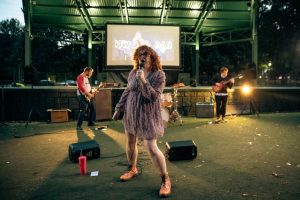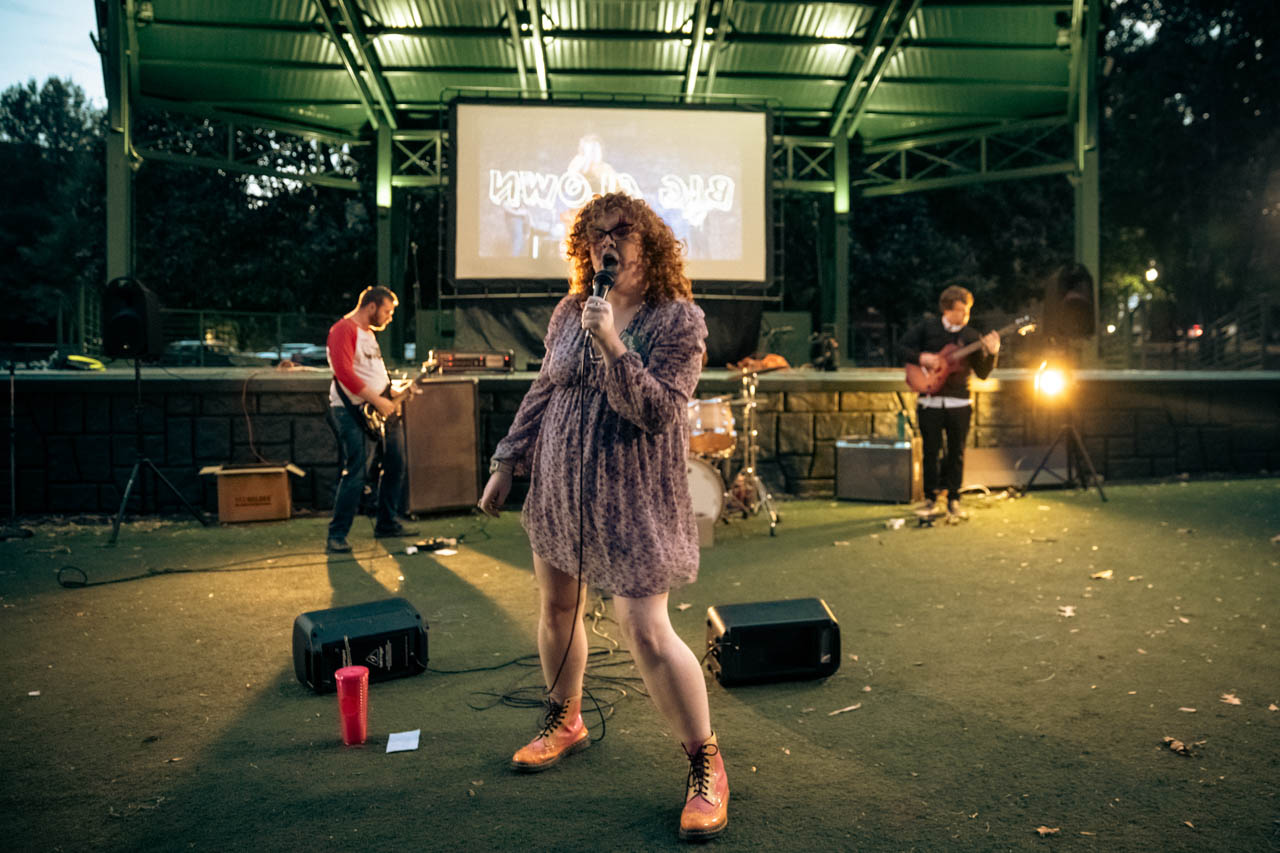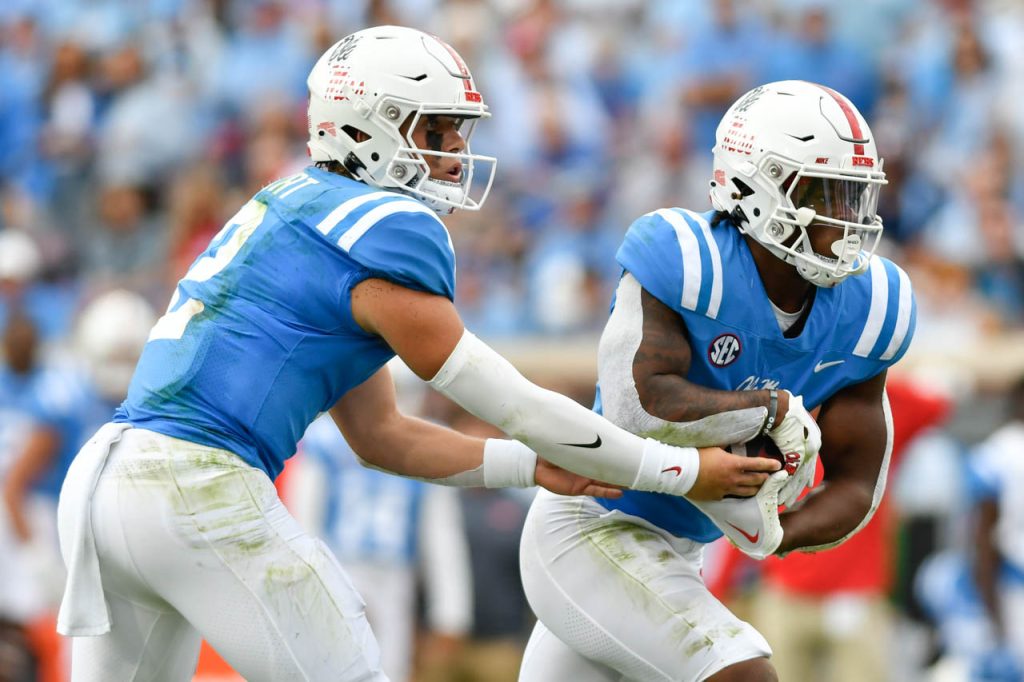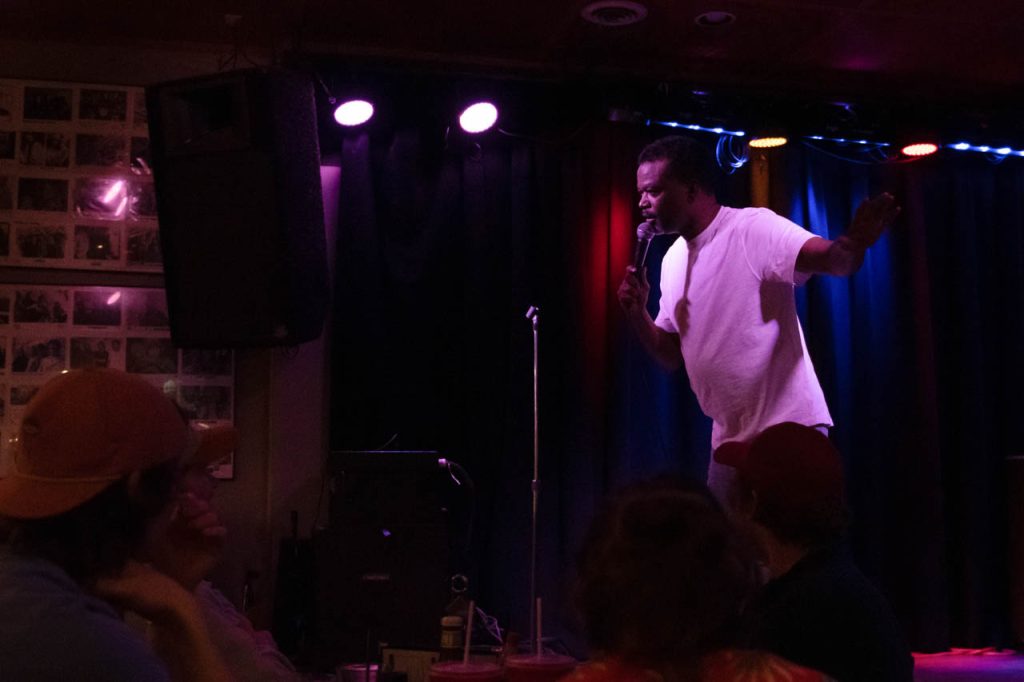
Through its annual event Sarahfest, the Sarah Isom Center for Women and Gender Studies aims to build community by celebrating diversity and artistic expression. This year, Sarahfest partnered with the Southern Documentary Project, the Center for the Study of Southern Culture and Yoknapatawpha Arts Council to showcase the creative works of Christina Alison Huff and Big Clown in a pop-up film screening and concert event on Sunday, Oct. 16.
“Big Clown” originated in 2021 in a project from an advanced filmmaking class as a part of Huff’s MFA program in documentary expression at the University of Mississippi. Huff’s work was motivated by the fact that Mississippi is a place that often resists artistic creativity.
“In Mississippi, a lot of people have to create their own art and create their own weirdness, and that might look like doing DIY shows in warehouse type spaces,” Huff said. “I’m also drawn to the weirder parts of Mississippi, such as a band who dresses up as clowns and sings about some very serious stuff in Mississippi.”
Big Clown, the Memphis based garage-punk band and subject of Huff’s documentary, shared their inspiration for songwriting and performing in the documentary and throughout the event.
Within Big Clown’s repertoire, the musical group seeks to utilize punk rock as a means of political expression. Lucy Isadora, the vocalist of Big Clown, expressed her frustration at the negligence and insensitivity of Mississippi government officials.
“Living in Jackson has been such a radicalizing experience because you see just what happens when the state government just completely does everything they can to starve a city, and something that is a big issue in Jackson is the infrastructure,” Isadora said in “Big Clown.”
The group’s first album, “Gains Weight,” began as an experimental session that resulted in the creation of an album over the course of one weekend. Going forward from that project, the group has shifted to developing long-term projects, but their extemporaneous nature has remained a consistent quality of their music.
“Creating art is like this way of expressing yourself, and it becomes doubly important when you’re told not to express yourself, both on a personal and a metatextual level,” Mitchell said.
Big Clown adds excitement and entertainment to each of their performances by approaching their art with a sense of passion and spontaneity. Many of their pieces include razor-sharp lyrics that dive into relevant topics ranging from mental health to sociopolitical issues.
“It makes perfect sense that there’s a small but strong punk scene in Mississippi because
of course there are like weird freaks making weird freak music in a place where people think there’s nothing going on,” Isadora said in Big Clown.
The essence of Big Clown lies in their hard-edged melodies paired with an explosive sound, presenting ideas and emotions in a lyrically simplistic way that resonates with a range of audiences. The artists’ zealous stage demeanor and stripped-down instrumentation plays a role in establishing the group’s engaging personality. Often, inspiration for songs arises from the group’s experiences in their musical careers and personal lives.
“Frogman is about a guy we met on our short tour who invented a dance that injured himself called the frog man,” drummer Zach Mitchell said.
Isadora stood at the forefront of the band at the Grove performance, wearing a face of bright clown makeup and a tiara. Each song Big Clown played only lasted around 90 seconds, but each track flooded the Grove with its eruptive energy and vibrant sound.
During the band’s live performance of “Frogman,” Isadora began hopping around and invited the audience to join her. In the group’s final song, the vocalist concluded the set by climbing into a garbage can.
“The art that I love that comes out of Mississippi is not made by big name artists or anything like that. It’s people that I personally know or people that live otherwise very regular lives. I’m not interested in the all-stars of the world,” Isadora said.














